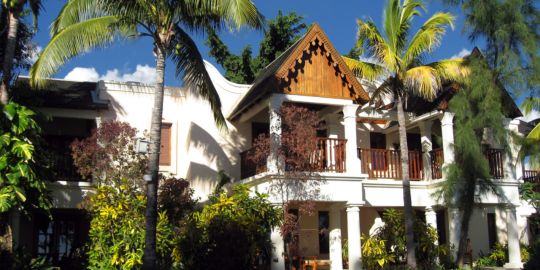Understand the differences between your home and host countries in terms of accommodation
Understanding a new country's housing rules and nuances compared to the customs you're familiar with can be pretty challenging. Our perceptions are often influenced by the destination's reputation or the culture in which we grew up. For example, popular TV shows such as Friends or the film L'Auberge Espagnole may give the impression that house-sharing is widespread worldwide. However, it's important to realize that, despite its popularity, this style of living is not the norm everywhere. Therefore, planning, researching standard practices based on your circumstances (student, professional, digital nomad, family with children, etc.), and maintaining an open-minded and flexible approach is crucial.
Understanding the nuances can be challenging and leave you with many questions: What does the rent cover? What are the landlord's and tenant's responsibilities? How are the bills split? Will the property be furnished or unfurnished? Seeking insights from locals or expats already living in the area is undoubtedly the best course of action. In addition, official forums, government services and your embassy or consulate can provide valuable answers and a clearer picture of any differences between your host country and your home country.
Countries where shared accommodation is less common
Compiling an exhaustive list of countries where shared accommodation is not standard is a daunting task. Over the past few decades, shared accommodation has become increasingly popular around the world, driven by the rising cost of living. However, certain countries have limited or no options for shared accommodation, often due to cultural or religious factors.
For example, Japanese culture emphasizes individual and family living and shared accommodation is relatively rare. However, there have been exceptions in recent years, particularly in large cities, where international students and expats can sometimes find shared accommodation.
In Saudi Arabia, housing practices revolve primarily around gender segregation, resulting in housing that is often gender-segregated, which limits the availability of shared living spaces. Although uncommon, co-housing does exist to a limited extent.
In some parts of the United Arab Emirates (UAE), such as Dubai, local laws and customs typically favor families and married couples living together. Non-family members sharing accommodation is less common, if not virtually non-existent.
Singapore is known for its expensive housing market and limited space. Most housing consists of government-subsidized flats, known as Housing and Development Board (HDB) flats, designed primarily for families. As a result, options for shared accommodation are limited. However, there are privately owned flats where, similar to Japan, expats can find opportunities to live together.
Accommodation with or without inclusive services
One of the notable differences between countries (and even cities) is the range of services included in the accommodation. The key is to understand and identify these nuances based on your destination. Some apartments or houses come fully furnished, with the advertised rent including all utilities, while others are unfurnished, requiring an additional budget for furnishings. Some rents only cover property-related charges such as water, gas or electricity, which must be paid separately. These practices are influenced by tenant preferences, country norms and cultural factors.
Countries where all-inclusive rents are available
Let's explore countries known for their all-inclusive housing rental packages. In certain American states, particularly bustling cities like New York, it's common to find accommodation that includes water, electricity, heating, internet access and sometimes even cable TV. Similarly, in Canadian cities, such as Toronto, Vancouver and Montreal, landlords often offer rents that include most utilities, internet access and even additional amenities such as shared laundry facilities.
In Europe, countries such as France, Germany, Spain, Italy and the Netherlands also offer a range of apartments with complete services. The availability and extent of these services may vary depending on the geographical location and prevailing property market standards.
In Japan, there is a type of housing known as "mansion" or "apaato". These private apartments come with a range of services included in the rent, such as water, electricity, heating, internet and sometimes even maintenance of the building's communal areas.
Finally, in South America, particularly Argentina, Brazil and Chile, you can find accommodation with all-inclusive services.
Countries where utilities are separate from the rent
In the UK, New Zealand and Australia, it's common to find flats or houses where bills for utilities such as water, electricity, gas and internet are separate from the rent. This trend also extends to Southeast Asian countries such as Thailand, Vietnam and the Philippines.
However, this is not an absolute rule, as exceptions can be found in different places. The situation is also evolving and influenced by the economic conditions of each country and region. For example, shared accommodation gained popularity after 2000, and some countries are still in the early stages of adopting this practice, which often appeals to young expatriates.
















